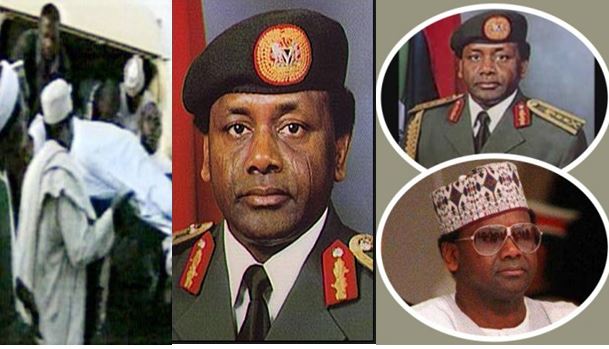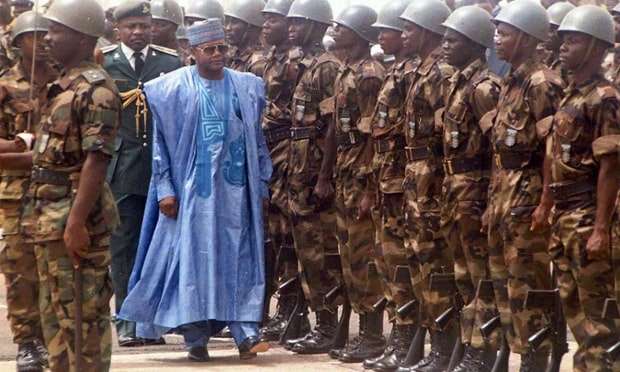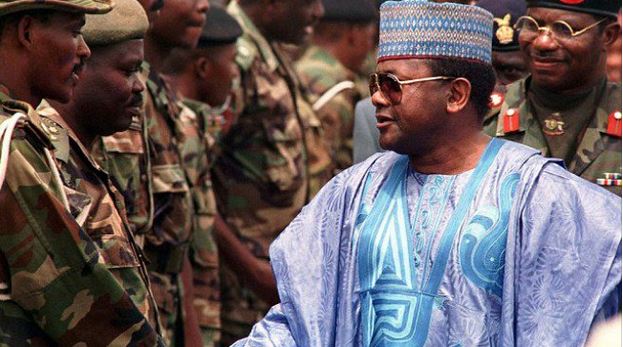 Gen. Sani Abacha became Nigeria’s Head of States from November 17, 1993, to June 8, 1998, as a result of the November 1993 coup. Born in Kano state September 20, 1943, Gen. Abacha was raised in that same state which he made his home.
Gen. Sani Abacha became Nigeria’s Head of States from November 17, 1993, to June 8, 1998, as a result of the November 1993 coup. Born in Kano state September 20, 1943, Gen. Abacha was raised in that same state which he made his home.
A brief history of Gen. Sani Abacha
But originally, he was from Borno state– a Kanuri to be precise.
Abacha was commissioned in 1963 after attending Mons Officer Cadet in Aldershot England. He attended the Nigerian Military Training College in Kaduna before then.
Particularly, Gen. Abacha’s military career is distinguished by a string of successful coups.
And being part of every successful coup, record has it that he is the most successful coup plotter in the history of Nigeria’s military.
At the age of 23, Abacha then a 2nd Lieutenant with the 3rd Battalion in Kaduna, took part in the July 1966 Nigerian counter-coup from the conceptual stage.
17 years later, in the orchestration of the 1983 coup d’etat that brought Gen. Muhammadu Buhari to power, Abacha was more than prominent.
He would later partake in the coup that ousted the same Gen. Buhari in August 1985.
And owing to the successfulness of that coup, Abacha was named Chief of Army Staff; as General Ibrahim Babangida became the head of states and Commander-in-Chief of the Armed Forces.
He would be appointed as the Minister of Defence in 1990.
Abacha’s seizure of power
The coup that brought Abacha into power in November 1993 was not carried out against a military head of state.
On 26 August 1993, Chief Ernest Shonekan was appointed as interim president of Nigeria by General Ibrahim Babangida.
And this was as a result of the pressure Babangida was under to cede power to a democratic government.
However, it would take the coup master only three months to seize power from Chief Ernest Shonekan.
Abacha’s impact on Nigeria
It is wrong to assume that Gen. Abacha’s administration only had a negative impact on Nigeria.
Yes, there were several cases of human rights abuses of which the hanging of Ogoni activist, Ken Saro-Wiwa was foremost of them all; and coupled with other dark vices that cannot be separated from his dreaded administration.
Yet, it cannot be denied that Abacha’s regime was not only outstanding in economic achievement, it was also unparalleled.
The most compelling evidence is that, in the space of four years (1993 to 1997), the country’s foreign exchange reserve rose from $494 million to $9.6 billion.







































Discussion about this post